Hey there! As tax season rolls around, it's crucial to stay on top of your filings to avoid any last-minute stress. We're here to help guide you through the process and ensure you don't miss any important deadlines. Curious about how to get started and make this year's tax season a breeze? Read on for our comprehensive tips and reminders!

Client's Full Name and Contact Information
Timely tax filing is crucial for individuals and businesses to avoid penalties and ensure compliance with federal and state regulations. Clients like John Smith, whose contact information includes johnsmith@email.com and (555) 123-4567, must gather necessary documents: W-2 forms from employers, 1099 forms for freelance earnings, and receipts for deductible expenses. The tax filing deadline, typically April 15th for individual taxpayers in the United States, is approaching, making it essential for clients to review financial statements and consult with tax professionals about potential deductions and credits. Staying proactive in the tax preparation process can result in accurate and beneficial filings.
Specific Tax Filing Deadline
Tax filing deadlines, such as those set by the Internal Revenue Service (IRS), typically fall on April 15 each year for individual taxpayers. Failure to meet the deadline can result in penalties and interest charges, emphasizing the importance of timely submissions. Potential consequences may include a 5% monthly late penalty on unpaid taxes, up to a maximum of 25%. Certain exceptions exist, such as the ability to request an extension until October 15. Taxpayers should also consider state-specific deadlines, which may differ, impacting overall compliance. Utilizing tax preparation software or consulting with a certified public accountant (CPA) can enhance accuracy and efficiency in the filing process.
Important Tax Documents Required
Tax filing deadlines approach each year, typically in April in the United States. Key documents essential for clients may include W-2 forms (issued by employers) detailing earned income and withheld taxes, 1099 forms (from clients who are independent contractors or freelancers) reporting various types of income, and receipts for deductible expenses such as medical costs, charitable contributions, and business expenses. Clients should also gather statements from financial institutions, like banks and investment brokers, which summarize annual interest and capital gains. Comprehensive organization of these documents ensures a smoother filing process, assisting in maximizing available deductions and minimizing potential tax liabilities.
Personalized Filing Instructions or Next Steps
Client tax filing reminders can provide essential guidance for meeting deadlines and ensuring accurate submissions. Personalized filing instructions tailored to individual clients streamline the process and enhance compliance. Key dates, such as April 15 for individual federal tax returns in the United States, are critical. Suggested steps may include gathering essential documents like W-2 forms for wages, 1099 forms for freelance income, and receipts for deductible expenses. Providing contact details for a dedicated tax advisor ensures clients have support during the filing process. Additionally, reminders about potential deductions, such as student loan interest or mortgage interest, can lead to significant tax savings.
Contact Information for Further Assistance
Timely communication regarding client tax filing is crucial for ensuring compliance with deadlines set forth by the Internal Revenue Service (IRS) and state tax authorities. Available contact information, including phone numbers and email addresses, should be clear and accessible. Utilizing dedicated service lines can facilitate immediate assistance for client inquiries. Providing operational hours allows clients to plan their communications effectively, ensuring questions about forms, deductions, or documentation can be addressed efficiently. Offering additional resources, such as a link to the official IRS website or relevant tax guides, can enhance client understanding and facilitate smoother tax filing processes.

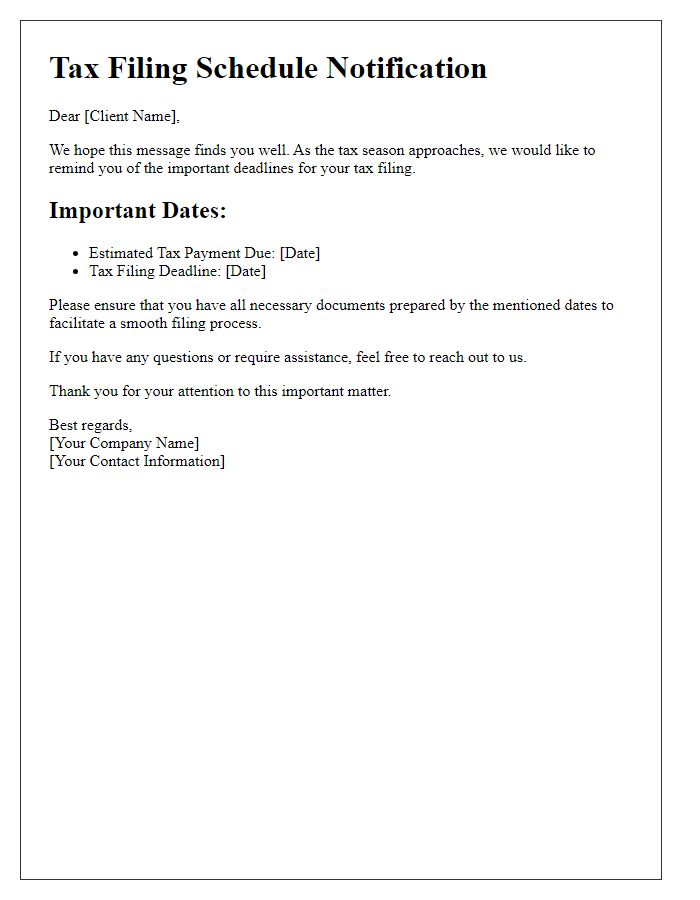
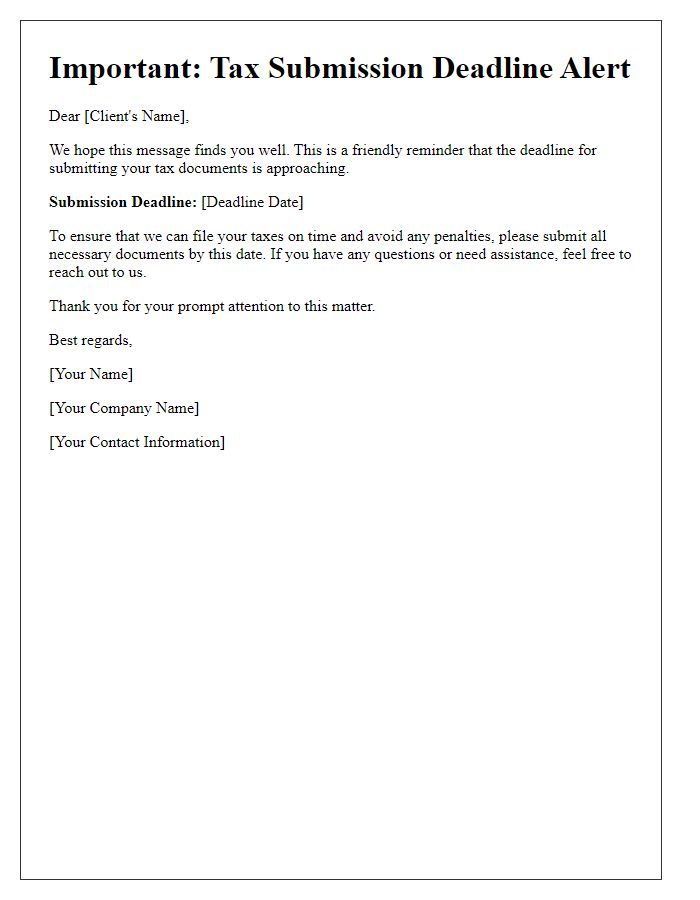
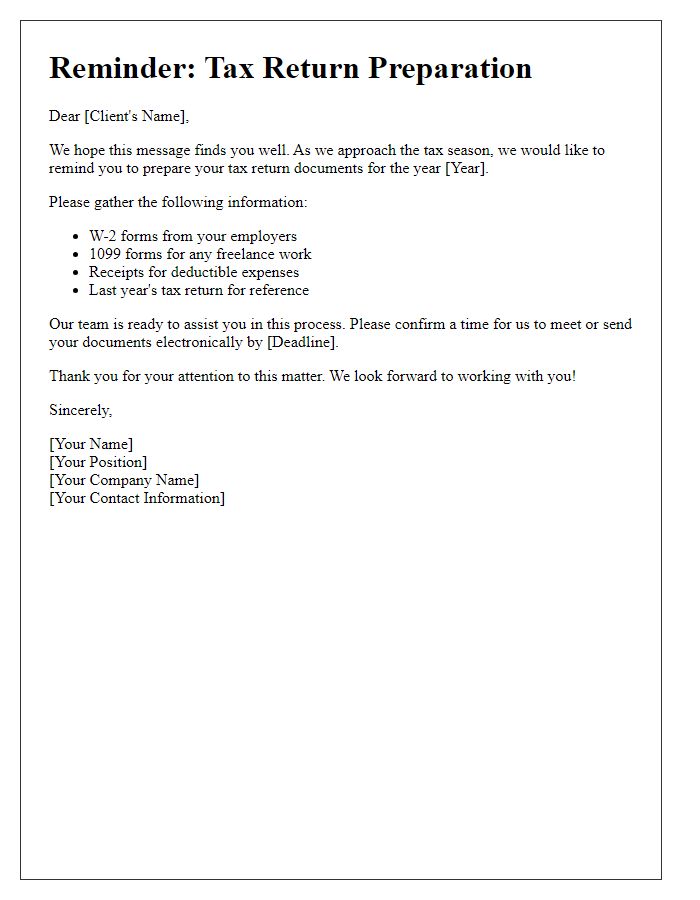
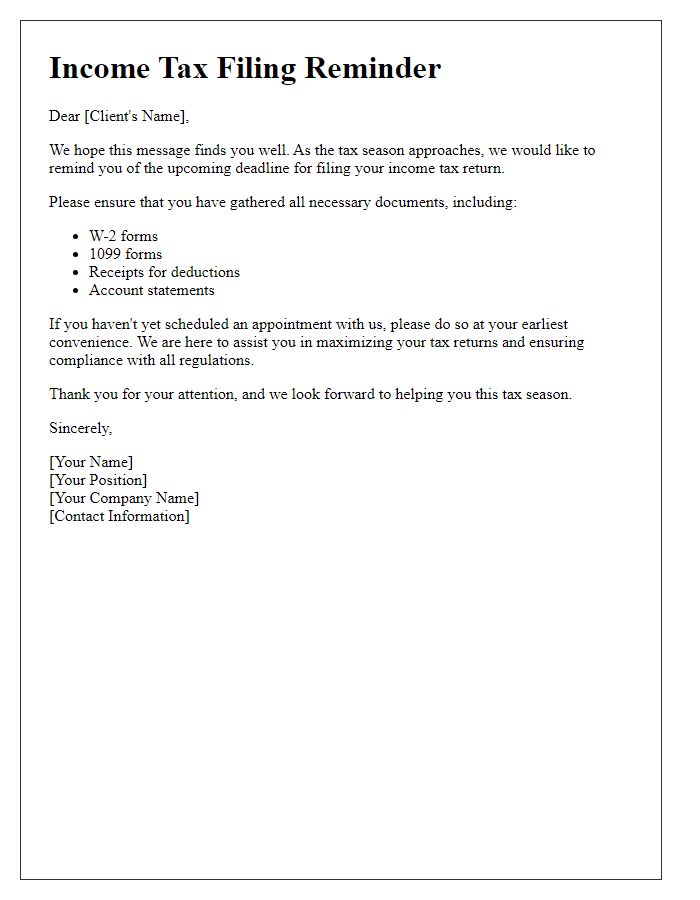
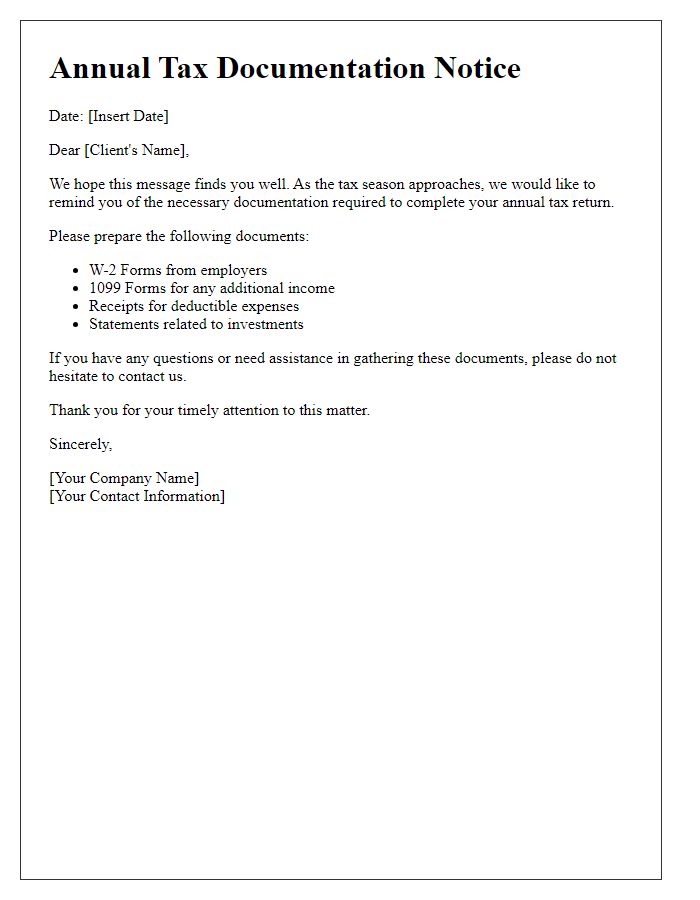
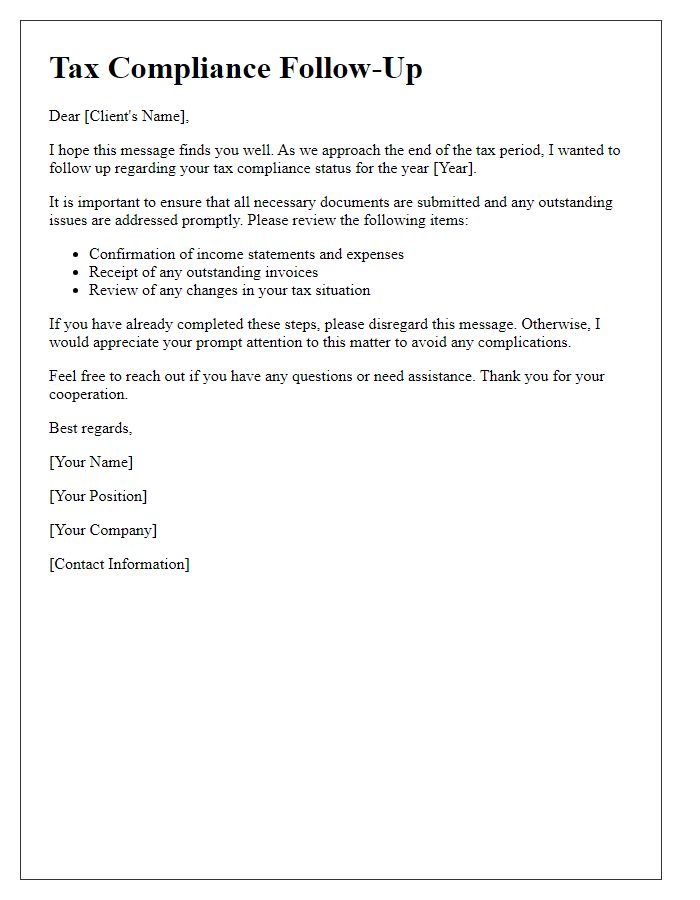
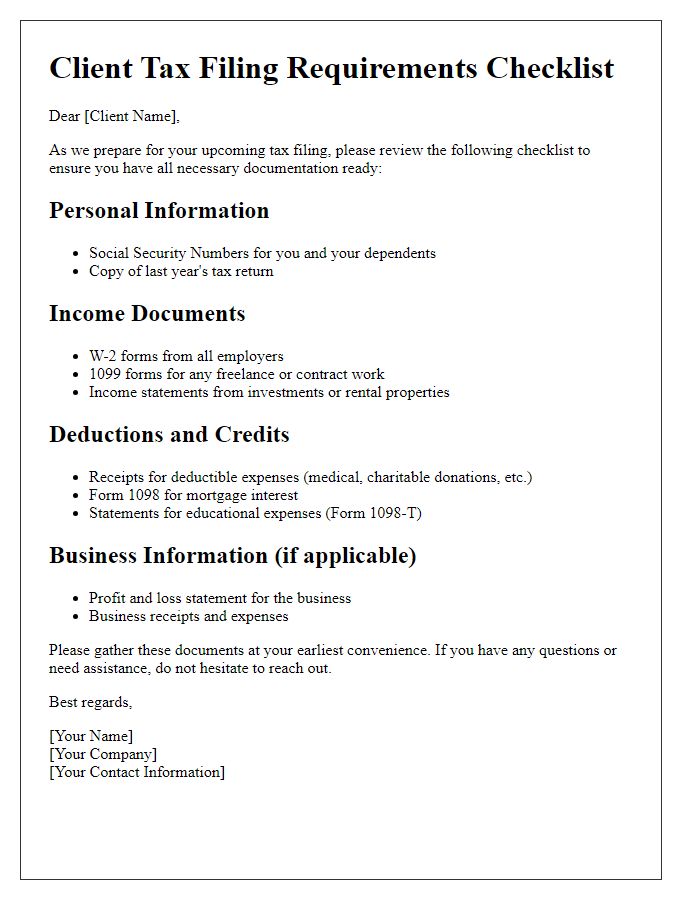
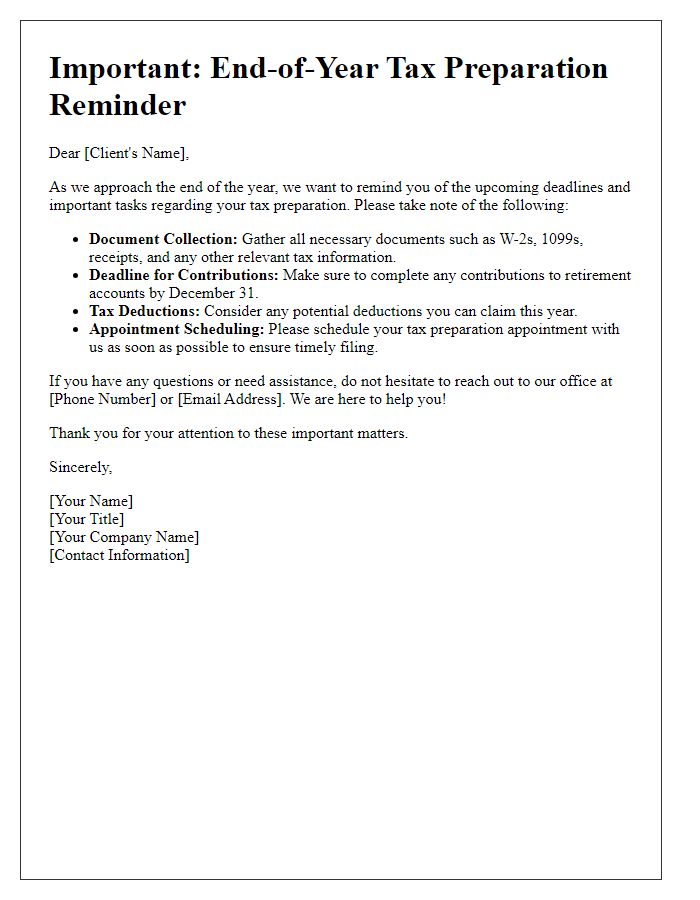
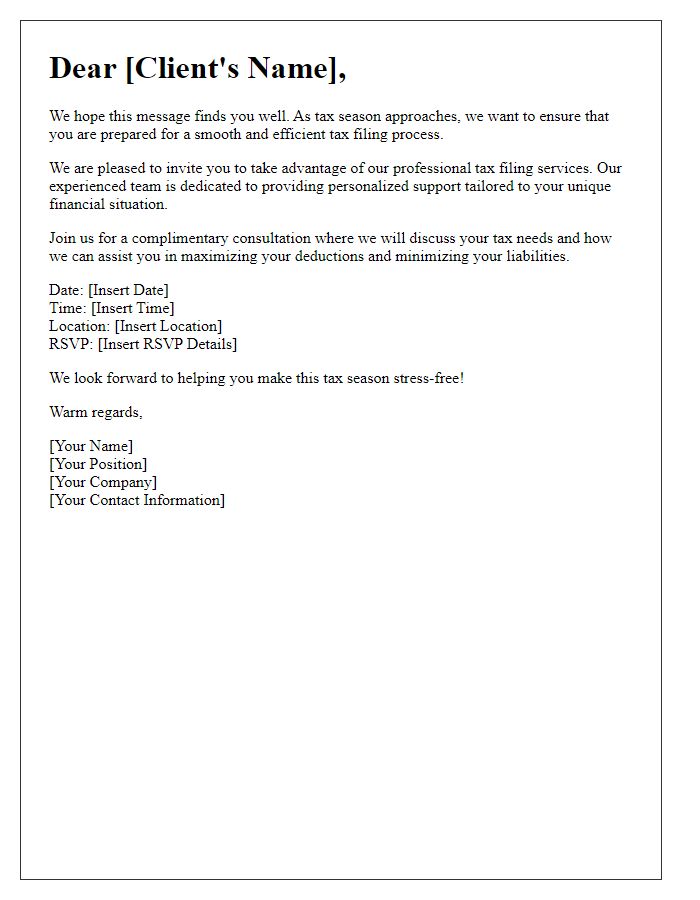
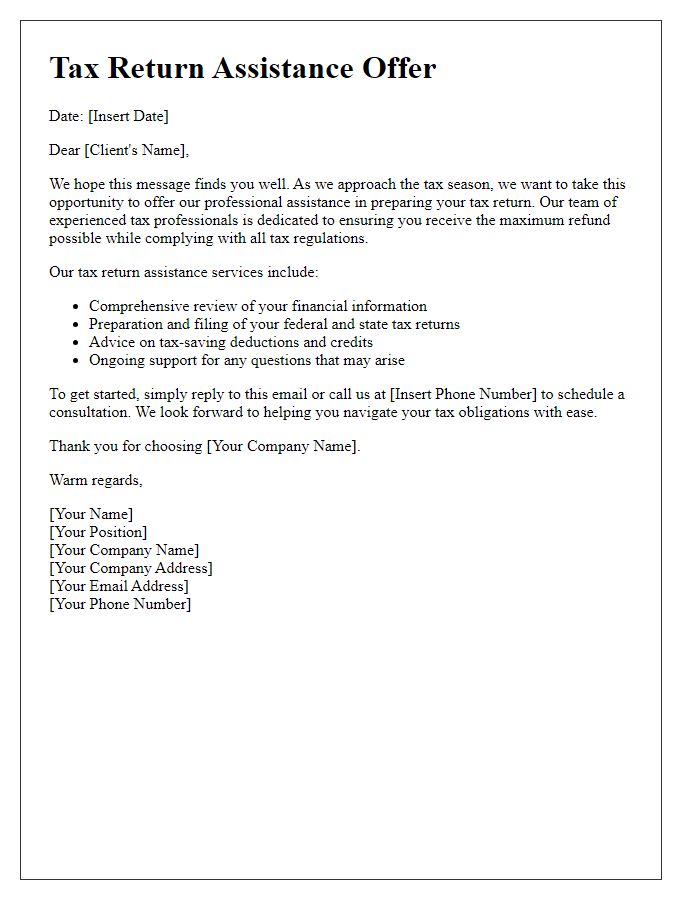


Comments